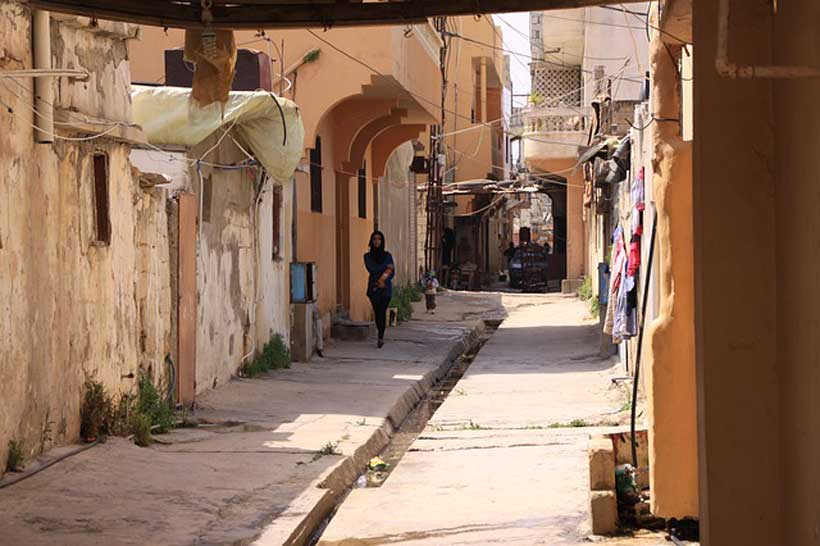Nations thrive on the principles of unity, discipline, and equality. On the contrary, differences and division expose them to host of issues within their ambit. Initially, the culmination of Pakistan was a result of those sacred principle and leadership far-sightedness. As a result, the basis of Pakistan as a federal state was laid down, first in 1956 constitution, then in 1973 constitution. However, the 1962 constitution did not based on federal form of government, but presidential. Thus, 1973 constitution categorically explains the domains of federal and provincial role and domain to exercise their powers. Albeit, rift between center and province is as old as Pakistan itself, time and again it hinder them, resulting into deep division.
Fortunate are those nations who forget their internal differences while facing crisis. Unfortunately, this is not a case when we look at ourselves. There are umpteen points of difference between center and provinces during such a critical time period of COVID-19. The entire world is shocked and baffled due to intensity of rising infections and resulting death toll. But, ours is a nation which still stands apart from each other in order to stem its spread. From very beginning when first case was reported on 26th February, center and province have persistently stands pool apart from one another in policy formation.
Another point of difference between center and provinces are revocation of 18th amendment. The party in show is the government and opposition. Both of them are blaming each other in this regard. Indeed, 18th amendment restored exact nature of the 1973 constitution and provincial autonomy. This landmark achievement is credited to all political parties who showed consensus and passed it without any iota of difference. So, during this time of global health emergency, it is sensible that both center and provinces remain focused to contain the corona virus, nothing else. Moreover, leadership of all political parties need to stop this outrageous politics of division for the sake of his own peoples health. More importantly, the incumbent government and ministers should left all political intriguing behind, till this emergency is over.
Furthermore, 10th National Finance Commission award is another factor of imbalance between center and provinces. Over 10 years no new award is given to provinces despite of continuous instance from provinces. Last one(7th NFC Award) was awarded in 2009 by then Pakistan People’s Party government. Constitutionally, every five years NFC award should be revised in order to meet changing demography and other factors, like resources share, and backwardness. However, reluctance at the part of center is behind this impasse in both center and province relation. Moreover, provinces have apprehensions, particularly from smaller provinces over cut in divisible pool share. Centre also want a share of provinces in losses which federal institutions are making. Apart from that, former wants to cut against development of tribal areas, Gilgit Baltistan, and in defense expenditure from provinces legitimate share. Thus, taking all these financial intrusion from center in province share is causing a deep imbalance in their working relation.
Further, construction of dam is another roadblock in smooth working relations of center and provinces. Earlier, former chief Justice Chaudhry Saqib Nisar established dam fund to finance the construction of Diemer Basha Dam. Later, federal government joined this mission and established joint account for dam construction. Except Punjab, all other provinces have few apprehensions on construction of dam, particularly Sindh province. Sindh has objection on its construction over river Indus because Sindh is located in lower riparian area where hardly reach enough water in summer season for cropping. Again, construction of dam is threating to Mangrove forest at delta, seepage of land area by sea water, and may cause droughts during summer due to lack of water for cropping. Thus, Council of Common Interest(CCI) is a body which can discuss the matter with provinces, but its meeting is not summoned since long. Indeed, dormant role of CCI is adding more in creation of confusion and disdain between center and province relation.
Few days back new controversy has begun between center and Sindh province over Pakistan Steel mill. Overall entire public sector organizations are incurring losses to exchequer in Pakistan, Steel mill is not the exception. However, Sindh government apprehended the move of retiring employee due to losses by steel mill. Sindh wants authority of administering the Steel mill because it is located in Sindh province that’s why closing it will cost huge to province. On contrary, federal government intending to pay them average 25 lack to each employee. Yet, it is not decided. It still lingers in limbo. The upcoming National Assembly session may have this agenda to discuss the fate of Steel mill employees.
The onus to forge a national consensus rested with the federal government. National purpose needs to be prioritized over politicking. CCI is in fact very balanced forum which offers equal representation of provinces and platform to discuss the matters of national importance. So, a long awaited session of the body must be convened to devise modus operandi to solve bottle neck in center-province relations. However, a culture of political intolerance and disdain is ripe in country. Political targeting and victimization has remained order of Pakistani politics throughout years. Similarly, government after government followed the same trajectory disdain and distrust thus procure disunity and indiscipline in political rank and file.
By summing up, center and province are reciprocal parts of one another. Individually, no one can thrive and prosper without contribution of the other. So, leadership in both wings of government and opposition need to take the onus for the sake of national development and progress. Issues and challenges which hinder their working relations, discussed and resolved amicably with fair opportunity and role while deciding any policy.


